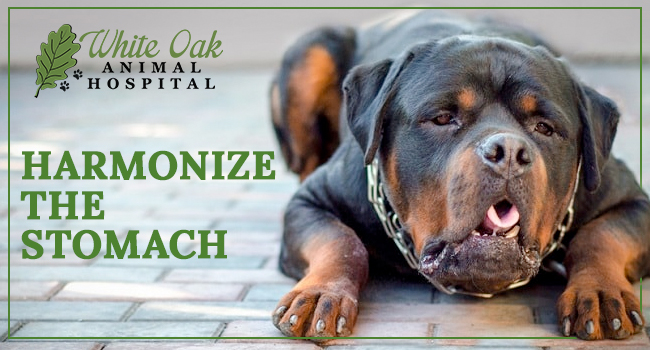
Pet vomiting can be scary when it lasts longer than a few days.
Chronic pet vomiting lasts longer than a few days.
Although your pet may have periods of no vomiting, if it persists for a long period of time, consult your veterinarian.
What Causes Pet Vomiting?
There are many causes of chronic pet vomiting.
For example, some of the most common include:
- Bacterial infection
- Foreign body
- Gastritis
- Inflammatory Bowel Disease (IBD)
- Kidney disease
- Liver disease
- Neoplasia
- Pancreatitis
- Toxicity
- Viral infection
Most importantly, your veterinarian can diagnose chronic vomiting and rule out other diseases and health problems.
Furthermore, most veterinarians recommend bloodwork and radiography for the first round of diagnosis.
Additionally, if answers are still not obtained, your vet might recommend an endoscopy with or without biopsy for a definitive diagnosis.
Lastly, some vets also use ultrasound.
Motion Sickness And Pet Vomiting
Did you know 1 in 5 dogs experience dog motion sickness when traveling?
Furthermore, 37% of dog owners took a dog on overnight car trips in 2016, according to a survey by the American Pet Products Association.
However, only 6% of dog owners who observed signs of motion sickness reported them to a veterinarian.
3 Symptoms of Pet Motion Sickness
Firstly, pet motion sickness and a virus have similar symptoms. However, pet motion sickness often manifests in a very specific manner through the following signs:
1. Lip Licking – after the car starts moving, you may notice your pet licking their lips. This behavior is a common, early symptom of motion sickness. Next, you may notice dry heaving, whining, or yawning.
2. Drooling – drooling is another common symptom of pet motion sickness. Your pet’s nausea causes their mouth to water like they’re waiting for a treat.
3. Shaking – your pet may shake, pace, or seem restless. Furthermore, if they aren’t antsy, they might seem inactive. Sometimes they just want to lie down and wait to feel better.
Solutions For Pet Vomiting
Treatments vary depending on exactly what is going on with your dog.
For example, if your dog is dehydrated, your vet will probably recommend fluid therapy to rehydrate.
Intestinal bacterial overgrowths require antibiotics.
Western medicine usually treats inflammatory bowel disease with steroids.
Some vets recommend anti-emetic and acid-reducing pharmaceuticals to keep dogs from vomiting.
However, pharmaceuticals only treat the symptoms of vomiting, not the root cause.
Kan Essentials Harmonize the Stomach is composed of a blend of herbs specifically designed to alleviate pet vomiting. Learn more about Western herbs to treat your pet’s digestive upset.
Cang-zhu Atractylodes Rhizome
Veterinarians recommend cang-zhu atractylodes rhizome for indigestion, stomachache, bloating, diarrhea, and loss of appetite.
Tangerine Dried Rind Of Mature Fruit
Most importantly, dried tangerine rind aids digestion and reduces nausea.
Magnolia Bark
Firstly, magnolia bark has been used in formulas to treat nausea and vomiting for centuries.
Red Jujube Fruit
Veterinarians recommend red jujube fruit to improve appetite.
Chinese Licorice Root And Rhizome
Most importantly, the flavonoids present in licorice root were shown in studies to reduce nausea, stomach pain, and heartburn.
Ginger Rhizome
Firstly, in studies, ginger’s effectiveness was comparable to dimenhydrinate (Dramamine). Veterinarians often prescribe dimenhydrinate to pets to treat nausea and vomiting.
Secondly, ginger may help dogs at early stages of bloat by stimulating movement in the stomach.
Thirdly, ginger helps relieve dog upset stomachs by preventing and expelling gas from the digestive tract.
Seeking an all natural solution for pet vomiting?
Try Kan Essentials Harmonize The Stomach.
Related Posts
-
Cat Diarrhea and Vomiting Herbal Remedies
Cat diarrhea and vomiting can be alarming for pet owners. If your pet vomits more…
-
Best Dog Cushing’s Herbal Remedies
Dog Cushing’s herbal remedies may benefit your pet. Canine Cushing’s disease is also known as…
-
Top Dog Cancer Natural Remedies
Many natural dog cancer remedies are available today. Most dog cancer natural treatments can be…
-
How To Treat Dog Rear Leg Weakness With Herbal Remedies
Dog rear leg weakness is an unfortunately common ailment. Causes can include injury, arthritis, and…









